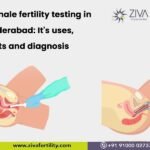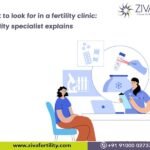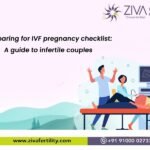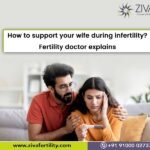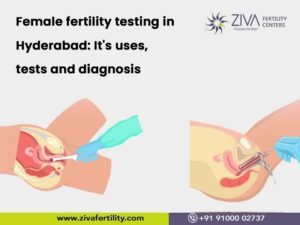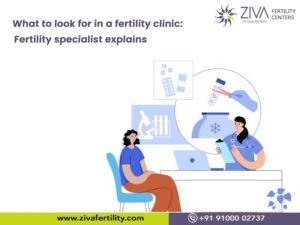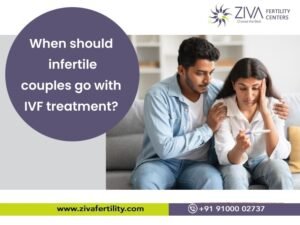Nowadays, women are venturing into professions of their choice and balancing their personal and professional lives. They, along with their male partners, are open and honest with each other and are helping one another in achieving their goals. These positive changes in society, especially regarding women, are welcoming. These social changes have pushed the age of conception to 30 and, in some cases, to the late 30s. Getting pregnant below 30 is biologically easy since both partners are fertile and energetic. However, it is not an impossible feat. When trying to conceive after age 35, it is good to know how your fertility journey will be. Meet a ZIVA fertility specialist now if you are trying to conceive after age 35.
It is better to know the challenges beforehand so that there are no surprises along the way and you will take the necessary precautions. Even after age 35, with the appropriate medical attention, you can enjoy your pregnancy and realize your dream of having a baby.
How are Fertility and Age related?

It is not a sure-shot thing that women after their 30s will be infertile. Infertility can occur at any age. Women enjoy peak fertility in their 20s. A slow decline starts around the age of 32. By the age of 37, fertility starts to decline at a much more rapid pace. Your chances of getting pregnant at age 30 are about 20%, and the chances decline to 5% by age 40.
For women of all age groups, two days before ovulation is their most fertile day.
Women Aged 19 to 26 showed a 50% chance of pregnancy in their most fertile days.
The same chances were 29% for women between the ages of 35 and 39
Effect of Age on Male Fertility
Women’s conception also depends on the male partner’s age. The decline of male fertility is not the same as that of the female, but male age does. If women had a 29% chance of conception between the ages of 35 and 39 on their most fertile day, the same chances dropped to 15% if their male partner was five years older. So, with an older male partner, the chances essentially got half.
Up until now, we have been talking about achieving pregnancy only. Older couples have a higher chance of miscarriages well into their pregnancy.
What are the risks associated with conception after the age of 35?
If getting pregnant is one part of the equation, then carrying it till healthy delivery is another story. Post-35 pregnancies can result in complications of your pregnancy journey, such as:
- An increased risk of miscarriage.
- The offspring might have genetic problems.
- An increase in the risk of Down syndrome.
At 25, there is a 1 in 1,250 chance of Down syndrome in the offspring. The same chances are 1 in 952 by age 30 and 1 in 378 by age 35.
Statistics of miscarriage as per the woman’s age
- Women in their early 20s – About 10% of pregnancies end in miscarriage
- Women in their early 30s – About 12% of pregnancies end in miscarriage
- Women in their 35s – About 18% of pregnancies end in miscarriage
- Women in their early 40s – About 34% of pregnancies end in miscarriage
Why does fertility decline after the age of 35?
At birth, the number of eggs in women is fixed. All the eggs are present when the baby girl is still in utero. It is such a wonder that around 20 weeks into gestation, a baby girl fetus has six to seven million eggs in her ovaries. Even at the time of birth, there are over a million eggs in the baby girl. When the baby girl hits puberty, she is left with 300,000 to 500,000 eggs.
At the age of maturity, only around 300 will mature and are ready to be released during ovulation.
The most common misconception is that fertility declines at the start of menopause. This is a false assumption since the female’s age progresses, their ovaries become less effective at producing mature, healthy eggs.
The ovaries will respond less to the hormones responsible for triggering ovulation. At kuch older age, response to ovulation-inducing medication is also very low; hence, fertility treatment is less successful in women with low ovarian reserves.
Those leading a healthy lifestyle, such as regular exercise, eating right, maintaining a healthy weight, and having no bad habits, also experience a natural decline in fertility with age.
The advantage of leading a healthy lifestyle is that fertility decline happens naturally. But if the same person has an unhealthy lifestyle, their fertility decline is rapid and might lead to unnecessary, unnatural complications in pregnancy.
One research has shown that women who regularly smoke have higher chances of fertility decline.
ART (Assisted reproductive technology) success rates after the age of 35
For most older couples, ART is a real boon. ART methods are working wonders for couples who have unexplained infertility. But one should have correct information about this, just as the body does not respond well to its hormones after a certain age. In any ART treatment, hormones are injected to increase ovulation, and as age increases, the body’s response to these hormones also reduces.
Below are the statistics collected by the Centers for Disease Control show the percentage of live births from IVF procedures using mothers’ eggs at various age groups.
- 41.5% for women younger than 35
- 31.9% for women age 35 to 37
- 22.1% for women age 38 to 40
- 12.4% of women age 41 to 42
- 5% for women ages 43 to 44
- 1% for women older than 44 years old
The good news is that the uterus doesn’t get as affected with age as much as the ovaries do. So, for women, using donor eggs is also an option if they wish to conceive at an older age.
How does using supplements affect fertility after the age of 35?
It is a common practice for most women over 35 to use supplements and natural remedies. Most of these companies advertise that they can reverse ovarian ageing, but no concrete evidence exists that any of these supplements or fertility treatments have reversed it. Before using these so-called supplements, please consult our expert fertility doctors at ZIVA clinics. Our expert doctors at ZIVA Fertility clinics will give you the right kind of nutritional guidance that can help you enhance your fertility and have a healthy pregnancy.
When to consult a Doctor?

If you have been leading a healthy lifestyle and do not have any bad habits, you can start by trying to get pregnant naturally. But if you see no results after six months, consult our Expert Fertility Specialist at ZIVA Fertility Clinic.
Most often, the reason you cannot conceive may not be age-related; there could be undiscovered health issues that are blocking conception. If you are 40 and your male partner is also older, please start by consulting a doctor.
We at ZIVA Fertility Clinics are very proud to mention that we have helped couples of older age groups realize their dream of having a baby. We are conveniently located in all major areas of Hyderabad. Our staff are equipped not only to give medical training but also to give you an emotional and understanding ear. For more information, please visit our website, Fertility Hospital Hyderabad | Fertility Clinic Near me | ZIVA IVF Center (ZIVAfertility.com), or contact us at +91-9100002737, +91-9392834024
info@ZIVAfertility.com.


